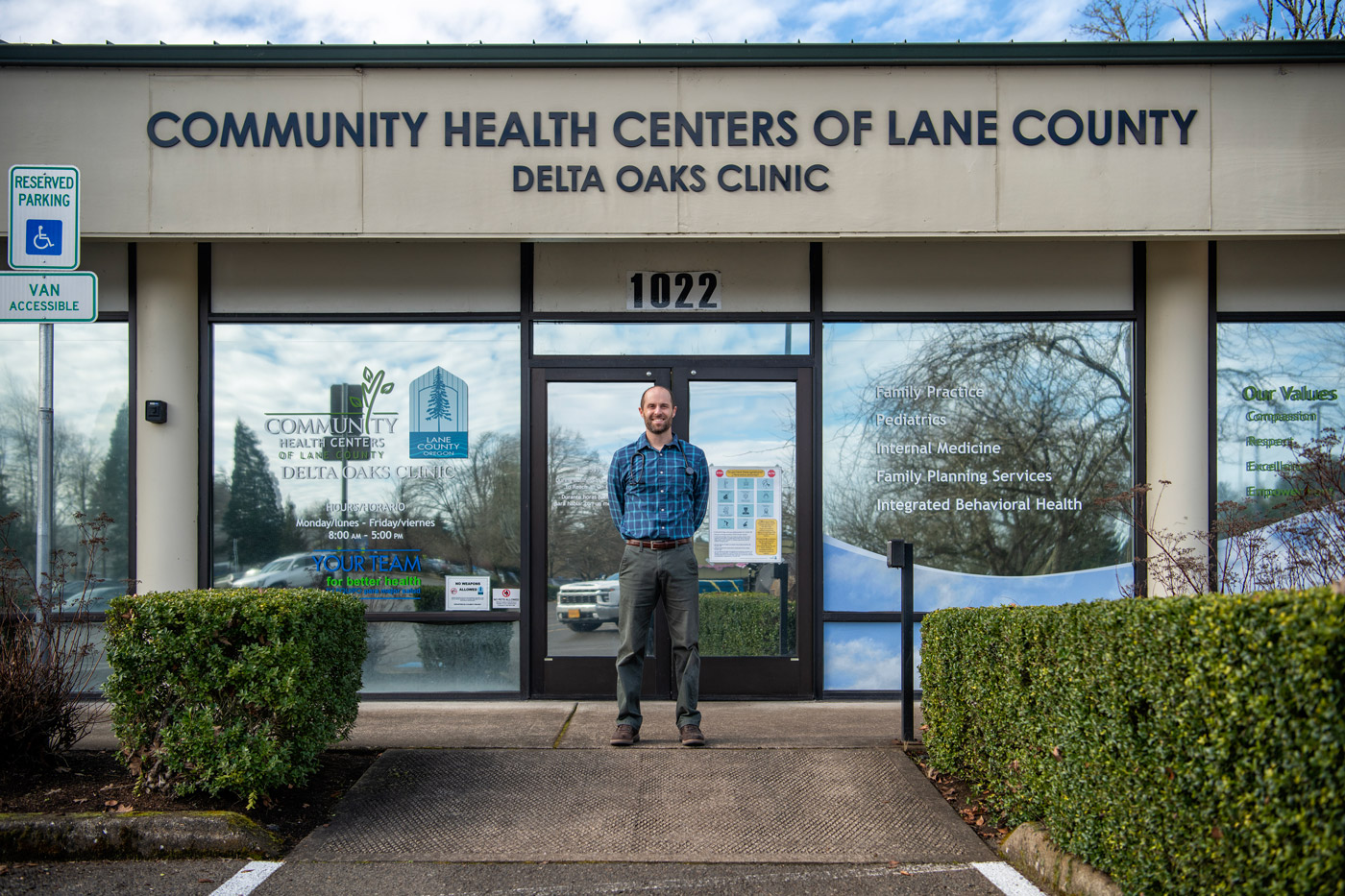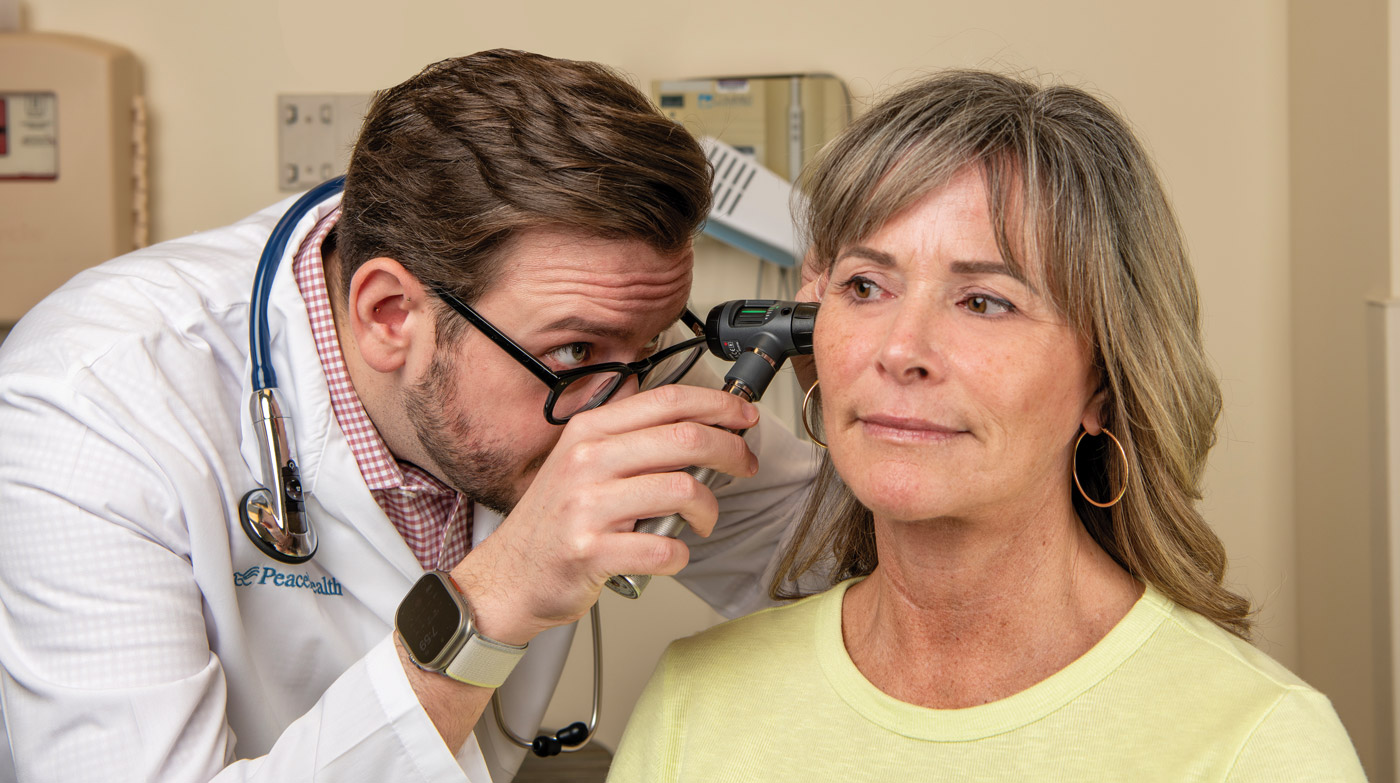Jason Roberts and Dustin McKague are among the hundreds of nurse practitioners actively practicing medicine in Lane County. Both specialize in family practice, Roberts at Lane County Community Health Clinics and McKague at PeaceHealth. Both practiced as registered nurses before pursuing the advanced degrees necessary to become family nurse practitioners.
The governing rules and regulations overseeing how nurse practitioners can deliver care to their patients vary by state. In Oregon, a nurse practitioner is a registered nurse who has been certified by the board as qualified to practice in an expanded specialty role within the practice of nursing, according to the American Medical Association Advocacy Resource Center.

This autonomy is great news for all Oregonians. As the trend of medical doctors and physicians transitioning into specialty roles continues to grow nationwide, nurse practitioners have been stepping up and filling the void in a collaborative and complementary way, offering a holistic, humanistic approach to caregiving.
The role of the nurse practitioner and the impact the profession has on access to high-quality care in Oregon, particularly in rural areas, deserves to be examined and celebrated. Roberts and McKague say the expanding role of nurse practitioners has improved their standing in relation to medical doctors and physicians assistants.

“The nurse practitioner program is based off of the nursing model, which tends to take in the whole person,” Roberts explains, “whereas the medical model is typically defined as cause and effect and is more disease-specific with regards to identifying the pathology and the treatment. I think the end goal is the same, but the approach is slightly different in our training. And that affects the relationship the patient has with their provider.”
McKague adds that patients can feel confident and comfortable having a nurse practitioner as their provider. “Nurse practitioners are highly trained clinicians and provide competent, excellent care to their patients,” he says. “In Oregon, we practice at the level of a physician in the primary care clinic. If nurse practitioners choose to specialize and work for a specialty clinic, they will generally assume more of a physician assistant role and work under a physician. This dynamic is why many nurse practitioners work in primary care, as they can work at the highest level of their degree and can work independently.”
In their respective practices, Roberts and McKague are able to form enduring relationships with their patients. “In family medicine, I see people across the lifespan,” Roberts explains. “I see them when they’re sick and I see them when they’re healthy. I think one of the most important factors for success in primary care is to build rapport and relationship with the patient, and that comes across in different ways — from building trust to active listening and having time to talk and communicate.”
That’s where the holistic, humanistic approach can really shine through. Roberts says being able to develop deep relationships with his patients is one of the key reasons he was drawn to primary care. “I really get to know my patients and the kind of lives they live,” he says. He appreciates being able to manage care when his patients have illnesses, but he also likes being able to learn about their overall care needs.
McKague credits his success in helping his patients to meeting them where they are. “There are so many reasons why a person might not be doing what you think they should be doing,” he says. “There could be cultural implications, social implications, family dynamics, the list goes on. The part I find really important in my approach to care is connecting with the patient. Yes, I’m treating them for high blood pressure but I also ask them ‘How are you doing?’ ‘What do you do for work, and how’s your family?’ ‘What brings you joy?’ That’s my favorite question to ask. And I ask it to almost every patient, at least when I first meet them, because I want to know what makes them happy. That moment is when you find that sense of community and connectedness.”
Patient education is at the core of the whole human aspect of the nurse practitioner pedagogy. While Roberts finds disease and pathology fascinating and satisfying, he equally enjoys the prevention and education components of care. “I generally practice by providing as much education and information back to the patient so that we’re on the same page and they know exactly what I’m thinking,” he says. “I really love being able to talk about preventative care, like how you can maintain a healthy lifestyle and be active. You can’t just tell someone to start exercising and eat healthier. You need to be more specific.”
McKague adds that one of the biggest skills he has picked up in his profession is how to teach someone about their health. “I learned that through experience, and the one thing that has carried over from nursing into my career as a nurse practitioner is how important it is to spend your skill and your time to help the patient have a healthier lifestyle,” he says.
Working in a collaborative environment in their respective practices has benefitted the professional and personal development for both men. “In our clinic we see each other’s patients when availability allows. And there’s a collegiality in our teamwork. Having a nurturing and respectful workplace has been helpful not only for me and learning, but has also been about keeping our patients safe,” McKague says. “Because it’s not about necessarily having a governed collaboration, but rather having respectful interactions with our colleagues.”
McKague says nurse practitioners are stepping up and helping address the nationwide challenge of doing more with less in our oftentimes heavily bureaucratic health care industry. Roberts agrees. “As the nurse practitioner numbers have become greater, medical doctors and physicians see the quality of care we provide, and I think that ultimately affects and changes the relationship and takes down the hierarchical effect between us.” And in the end, we all receive better care.


